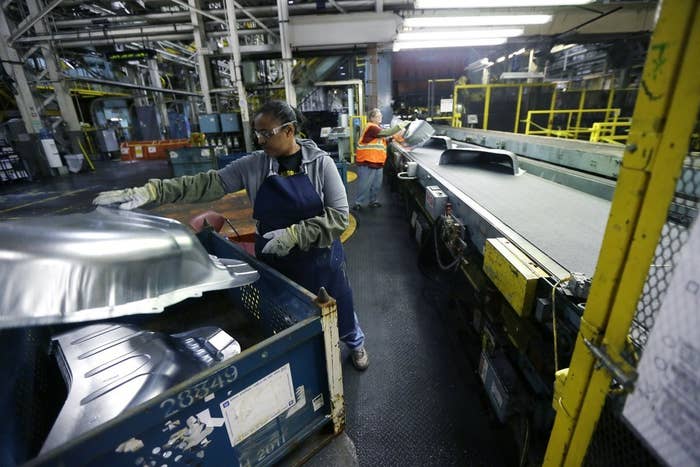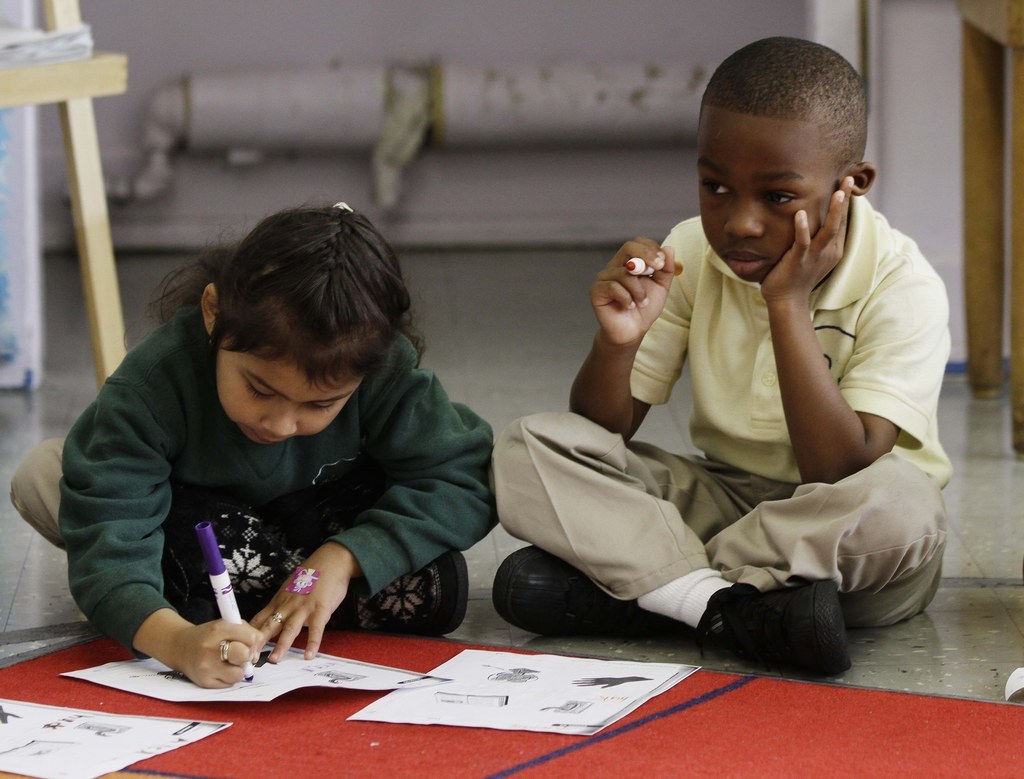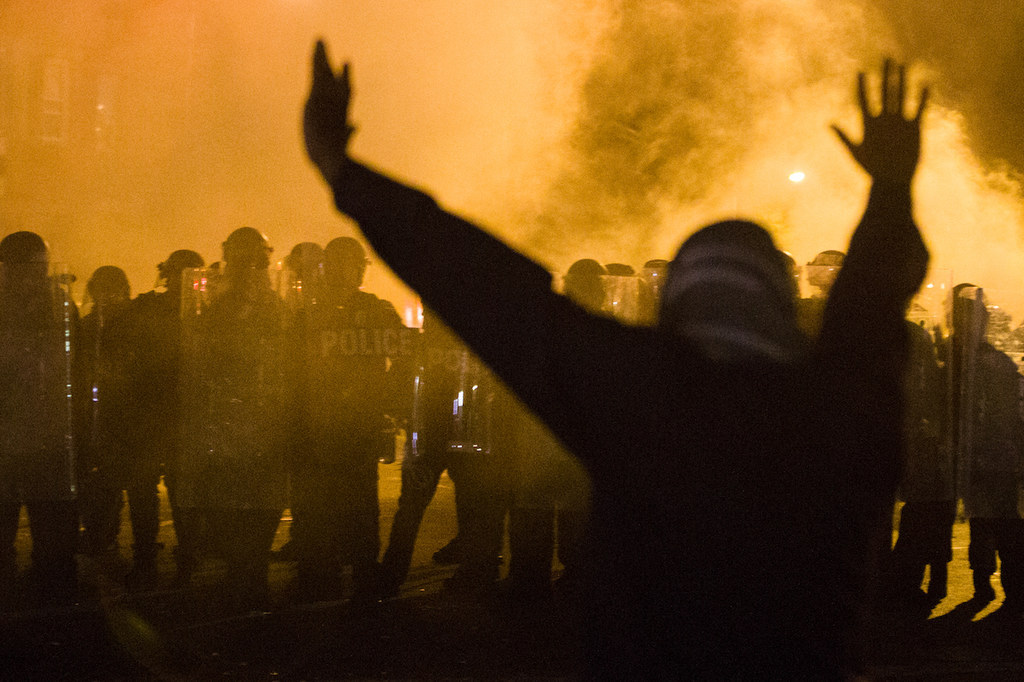
"It's just a fact," presidential candidate Rand Paul told reporters in Baltimore in the aftermath of days of riots. "The number one risk factor for poverty in our country is having your kids before you are married."
A Republican senator for Kentucky and a doctor, Paul has been saying for almost a decade that marriage can beat poverty. He also believes that "government can't do anything about this," and that it's time for a "cultural change" to encourage people to wait to have kids until after marriage.
But Rand's prescription for treating poverty might only address one of its symptoms, say social scientists, not the root causes of the chronic social malady.
"He's jumping the gun," sociologist Dalton Conley of New York University told BuzzFeed News. "The number one cause of poverty is not marriage."
On its face, poverty has a simple explanation: not having enough money. An income less than $20,090 for a family of three — a single mother with two children, say — qualifies as impoverished under U.S. standards. Today just under 15% of the population, about 43 million people, live in poverty.
But why? Debate over poverty's causes has percolated at least since President Lyndon Johnson announced a "War on Poverty" in 1964. Since then, economic analyses have found that poverty stems from a complicated mix of factors, including stagnant wages, a lack of education, and the rise of single-parent families. And experts disagree about which is most important.
"Many reasons could be responsible for poverty," sociologist Robert Lerman of the Urban Institute in Washington, D.C., told BuzzFeed News. "It could be cultural, it could be economic, it could just be who gets married, it could be contributions from all of them."
A Harvard economic study published this month pointed to geography — the county a child grows up in — as a big factor in poverty. Children whose families received vouchers that moved them from poverty-stricken public housing to well-off neighborhoods before they turned 13 had 31% higher incomes than those who stayed put.
That study found that the richer neighborhoods had more married couples — but also better schools and less racial segregation.

Of the many explanations for the persistence of U.S. poverty, the simplest is that wages have stagnated among the poor for the last three decades.
"The number one risk factor [for poverty] is not having a job," Isabel Sawhill, a social scientist at the Brookings Institution in Washington, D.C., told BuzzFeed News.
What those jobs pay also matters. Last week, a report by the Organization for Economic Cooperation and Development found that U.S. minimum wage employees who make $7.25 an hour needed to work 50 hours a week to earn more than a poverty wage. In Australia, they need to work six. A 10% increase in the U.S. median wage would cut the poverty rate by about two percentage points, according to a 2005 National Bureau of Economic Research report.
Sawhill, the author of Generation Unbound: Drifting Into Sex and Parenthood Without Marriage, has called for young people to delay marriage until they are ready to have children, so she might seem sympathetic to Paul's argument. But she sees simply calling for marriage without providing training and jobs for the down and out as an "oversimplification" of the problem.
"You don't need to be married to stay out of poverty," Sawhill said. Her own research suggests that the decline in traditional marriage is responsible for the poverty rate being about 5% higher than it would be otherwise.
But single parenting largely leads to poverty by winnowing job opportunities, she argued. "I'm not a person of the left, but I'm at the point where I think we should try subsidizing jobs."

With many manufacturing jobs gone, a lack of education also keeps people in poverty.
"The number one risk factor for poverty is not marriage, it is education," sociologist Dalton Conley told BuzzFeed News.
A 2014 Pew Research report found that college graduates were five times more likely to escape the lowest rungs of the income ladder. The same analysis showed that growing up in a two-parent family increased the odds to three times more likely, still significant but not as big a deal as completing college.
Statistically, just failing to complete high school looks like the biggest risk factor for poverty, sociologist Andrew Cherlin of the Johns Hopkins University told BuzzFeed News.
How to get kids to complete that education is the rub, with only 22% of students who enroll in community college completing an associate degree within three years.
Lerman argued that staying in school by itself changes the mindset of students, helping them get out of poverty in ways beyond even the specific skills they pick up that make them job material. "You learn a profession, you gain a new identity," he said.

So what about marriage?
Just under 15% of the population, about 43 million people, live in poverty. That's higher than the 11% rate of the 1970s. And that rise in poverty does correlate with the rate of children born outside of marriage, which has increased from about 10% in 1970 to about 41% today.
That means Paul's argument against having children before marriage leading to poverty makes sense on a certain level, Conley said. "No question there is a correlation, but that doesn't mean it is the cause. And the evidence that it is, is slim."
Studies of twin girls, for example, suggest that when one twin has a child outside of wedlock and the other does not, they are both equally likely to end up poor in the long run.
Lerman, however, is more sympathetic to Paul's argument, joining the American Enterprise Institute's Brad Wilcox in arguing that a nationwide cultural shift among the poor against marriage has exacerbated poverty.
Teenagers and people in their early twenties with children face a tougher time in going to school and picking up job skills. They also shoulder more of the rent and food costs than they would if married, and have less time to make sure kids do their homework and get to school.
However the extent to which single-parent marriages are a cause of the increase in poverty, rather than an effect, is tough to study, Lerman acknowledged. "We can't force people to get married and see what happens."

The recent riots in Baltimore following the death of Freddie Gray while in police custody have pushed the question of poverty once more into the national spotlight.
When Paul made his comments in Baltimore, he cited the 2012 book Coming Apart: The State of White America by political scientist Charles Murray of the American Enterprise Institute in Washington, D.C.
Neither Paul's campaign nor Murray responded to requests for comment on their reasoning. Murray is most famous for his book The Bell Curve, which made the highly controversial argument that differences in black and white IQ scores were meaningful, and argued against affirmative action. Critics found the book racist. Race and segregation figure into the question of poverty as well, going back to 1965's The Negro Family: The Case For National Action, by then-Assistant Secretary of Labor Daniel Moynihan. The report linked a rise in single parenthood in black families to cultural shifts, rather than a shortage of jobs for men.
In Coming Apart, Murray suggested that a cultural shift toward unmarried parenthood among whites is similarly the fundamental factor dividing them from the wealthy.
Sawhill thinks that the upswing in white unmarried couples with children, which now describes about half of all Americans under 30, has pushed Paul and other conservative leaders to make family dynamics the centerpiece of their arguments about poverty, Sawhill suggested, rather than jobs.
Unlike Paul, Lerman recommends a robust government- and school-based effort to beat poverty. That might include, for example, adding relationship skills to high school sexual education classes and launching apprenticeship programs to put more at-risk teenagers into jobs.
In today's politically polarized environment with black communities seeing riots in Baltimore and elsewhere, he added, comments such as Paul's about poverty and marriage can quickly escape the world of statistics.
"People are selectively libertarian about this — liberals don't want to tell people to get married and conservatives don't want to tell businesses what to do to help with poverty," Lerman said. "The question of what to do about poverty is really a separate question from what are the factors behind it."
And that still leaves the question of what ultimately causes poverty up in the air, whether the prescription comes from Rand Paul or from social scientists.
"No one knows what the number one risk factor for poverty is," Cherlin said. "It's all speculation."
